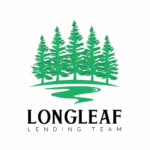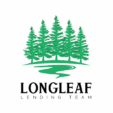HOW TO QUALIFY FOR A MORTGAGE
A Guide From the Longleaf Lending Team
Securing a mortgage may seem intimidating, but with the right mortgage lender and a solid understanding of the process, it can be a smooth and rewarding journey. That’s why homebuyers across South Carolina trust the Longleaf Lending Team at Neighborhood Loans to guide them every step of the way.
Whether you’re buying your first home or your forever home, this guide covers what mortgage loan lenders are looking for—and what you can do to strengthen your application.
Start With a Home Loan Preapproval
Getting a home loan preapproval is the essential first step. It gives you a clear picture of your buying power and shows sellers you’re serious. The Longleaf Team at Neighborhood Loans makes it quick, easy, and local.
What Do Mortgage Loan Lenders Look For?
Steady Income
Lenders want to see a stable income that shows you can make consistent monthly payments. Be prepared to provide:
- Recent pay stubs
- W-2 forms
- Tax returns (especially if you’re self-employed)
For freelancers or business owners, lenders will usually average your income over the past two years.
Property Type
The type of home you’re buying matters. While a single-family home is generally the safest bet, condos, investment properties, or multi-unit homes may require:
- A higher credit score
- A larger down payment
- More documentation
The Longleaf Lending Team can help you navigate the options.
Assets
Lenders will check to make sure you have enough financial reserves to cover your down payment, closing costs, and emergencies. This includes:
- Bank accounts
- Investment accounts
- Retirement savings
Pro tip: Unexplained large deposits will need to be verified, so keep your financial activity clean and documented.
Credit Score
Your credit score plays a major role in qualifying for a mortgage. A higher score can unlock:
- Lower interest rates
- No PMI
- Better loan programs
Want to boost your score? Pay bills on time, dispute errors on your credit report, and keep your credit card usage under 30%.
Debt to Income Ratio (DTI)
Your DTI compares your monthly debt payments to your income. Most mortgage loan lenders prefer a DTI of 36% or less, though some programs allow higher with compensating factors.
Other Key Mortgage Factors
PITI
PITI stands for Principal, Interest, Taxes, and Insurance—your full monthly housing expense.
Most lenders want your PITI to stay under 28–31% of your gross income.
Closing Costs
Expect to pay 2–5% of your loan amount in closing costs. This may include:
- Appraisal fees
- Title services
- Attorney fees
- Prepaid taxes and insurance
Request a Loan Estimate early so you can plan ahead.
Private Mortgage Insurance
If your down payment is under 20%, you may need PMI. While it adds to your monthly cost, it allows you to buy a home sooner without waiting to save a full 20%.
Tips to Improve Your Mortgage Approval Chances
Lower Your DTI
- Pay down high-interest debt
- Consolidate monthly payments
- Boost income with side work or overtime
Increase Your Credit Score
- Dispute any credit report errors
- Set up automatic bill payments
- Keep balances low on credit cards
Make a Bigger Down Payment
- Avoid PMI
- Get better interest rates
- Ask us about down payment assistance programs for first-time buyers

Apply Today with the Longleaf Lending Team
Applying for a mortgage is easy with the Longleaf Lending Team at Neighborhood Loans, your trusted, local mortgage loan lenders in Kershaw County and the surrounding areas. When you’re ready, we’ll walk you through the mortgage loan preapproval process and help you collect the documents you need.
And if you want to stand out in a competitive market, ask us about early underwriting—a program that lets us issue full loan approval before you’re under contract, helping you compete with cash buyers.
